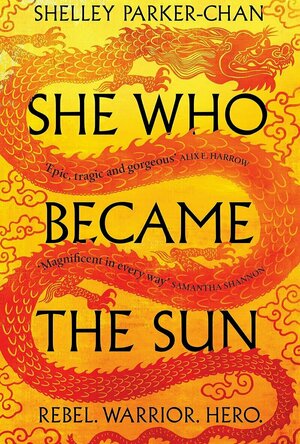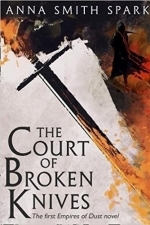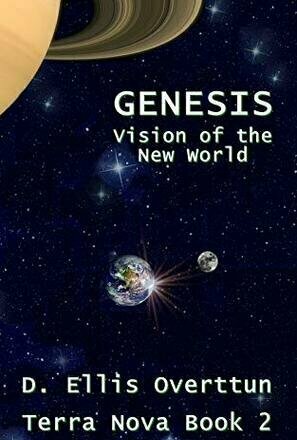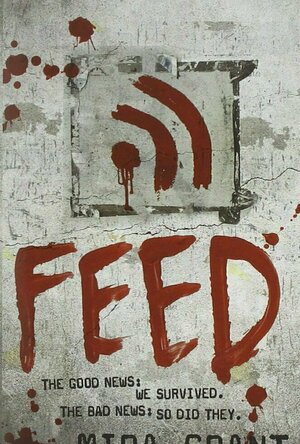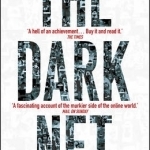Search
Rachel King (13 KP) rated The Bronze and the Brimstone in Books
Feb 11, 2019
This book is the sequel to The Lens and the Looker: Book #1 of the Verona Series (History Camp: the Verona Trilogy) and opens with the main character, Hansum, in a dream. This is actually rather confusing, as I don't realize he is dreaming until afterwards, and it seems like a poorly-timed ploy to re-introduce the reader to what has occurred so far in the series.
Early in the book, Hansum is separated from his friends, but not before he manages to marry Guillietta in secret. What bugs me about this is how Guillietta's father still treats him like a child, even though he is certainly entitled to be treated as an adult by this time. Hansum exhibits a certain level of maturity that few seem to recognize or respect. Once Hansum is moved to a private estate, his story exchanges with the rest of his friends in alternating sections.
The drama that occurs between Shamira and the artist is quite transparent to me. I am not sure if the author intended for the reader to discern the artist's true intentions so easily, but the artist's lack of talent combined with obvious lies and an obsessive interest in the lookers made it apparent what he was really about. I can only feel sorry for Shamira in her first foray into the realm of romance.
Hansum does well at creatively avoiding an engagement to Lady Beatrice, but I had to wonder how long he would be successful at this. With Hansum's almost constant protectiveness over the genie, Pan, I also wondered how long he would really be able to keep up the ruse.
With a greater focus on the technological advancements that Hansum is introducing, and less of a focus on the relationship-building of the first book in the series, this book was better written and a more enjoyable read for me. The author's evident strengths lie in his knowledge of the technology used in the series and the history of 14th-century Verona, so when those are brought to the forefront, the writing is quite intriguing. I still feel that the author is trying to do too much with this novel and trying to appeal to a too-large audience with everything from romance, history, suspense, political intrigue, and technology, to numerous science fiction themes, but it is better written than the first book in the series.
Early in the book, Hansum is separated from his friends, but not before he manages to marry Guillietta in secret. What bugs me about this is how Guillietta's father still treats him like a child, even though he is certainly entitled to be treated as an adult by this time. Hansum exhibits a certain level of maturity that few seem to recognize or respect. Once Hansum is moved to a private estate, his story exchanges with the rest of his friends in alternating sections.
The drama that occurs between Shamira and the artist is quite transparent to me. I am not sure if the author intended for the reader to discern the artist's true intentions so easily, but the artist's lack of talent combined with obvious lies and an obsessive interest in the lookers made it apparent what he was really about. I can only feel sorry for Shamira in her first foray into the realm of romance.
Hansum does well at creatively avoiding an engagement to Lady Beatrice, but I had to wonder how long he would be successful at this. With Hansum's almost constant protectiveness over the genie, Pan, I also wondered how long he would really be able to keep up the ruse.
With a greater focus on the technological advancements that Hansum is introducing, and less of a focus on the relationship-building of the first book in the series, this book was better written and a more enjoyable read for me. The author's evident strengths lie in his knowledge of the technology used in the series and the history of 14th-century Verona, so when those are brought to the forefront, the writing is quite intriguing. I still feel that the author is trying to do too much with this novel and trying to appeal to a too-large audience with everything from romance, history, suspense, political intrigue, and technology, to numerous science fiction themes, but it is better written than the first book in the series.
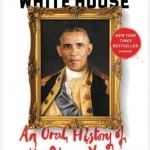
Black Man, White House: An Oral History of the Obama Years
Book
New York Times Bestseller (Humor) "The book everyone is laughing about!"--Joe Scarborough, Morning...
Lottie disney bookworm (1056 KP) rated She Who Became The Sun in Books
Aug 30, 2021
Beware those who journey further – a fairytale this ain’t!
After a fortune teller destines her brother for greatness and her own life to be worthless, a peasant girl may be expected to resign herself to her fate. However, upon her brother’s premature death, the girl seizes an opportunity to adopt both his name and his destiny.
She Who Became the Sun is a brutal, hard hitting debut to The Radiant Emperor series. Comparisons tend to quote Mulan due to the setting and the nature of Zhu disguising her female birth, but this is honestly where the comparison ends. For me, this novel is as if Mulan was in the Game of Thrones novels: warring factions, political backstabbing and the quest for power, Parker-Chan really doesn’t hold back.
As the debut novel, She Who Became the Sun has a lot of work to do in world-building and revealing the history behind the main characters. As a result, the pace of writing can feel a little slow at times but the final few chapters are well worth any previous perseverance.
Despite the pace in the middle of the novel, Parker-Chan’s writing is lyrical and intense simultaneously. Zhu’s desire to live gives a desperate, raw undertone to every one of the chapters under her POV. This is in direct juxtaposition from our other main character, Ouyang, who exudes cold detachment.
Zhu and Ouyang are both orphans, both queer and, as a girl and a eunuch, are both shunned by society. However, they consistently find themselves facing each other on opposite sides of a war: they may be ‘like and like’ but they are both characters who believe that their path is already decided for them, and neither will let anyone stand in their way!
Zhu and Ouyang are complex, well-developed characters, but they are nothing without their stunning supporting cast! I particularly loved Xu Da, Esen and Ma who never showed any prejudice against our main protagonists and purely accepted them for who they were.
She Who Became the Sun intertwines historical fiction with fantasy, war strategies with spirits and death with fate. This novel manages to be gritty and violent whilst also exploring gender identity in an open and refreshing manner. Morality is blurred and ghosts are rife: I can’t wait to see what happens next.
Thank you to Netgalley and Pan Macmillan for gifting me an e-ARC of She Who Became the Sun.
After a fortune teller destines her brother for greatness and her own life to be worthless, a peasant girl may be expected to resign herself to her fate. However, upon her brother’s premature death, the girl seizes an opportunity to adopt both his name and his destiny.
She Who Became the Sun is a brutal, hard hitting debut to The Radiant Emperor series. Comparisons tend to quote Mulan due to the setting and the nature of Zhu disguising her female birth, but this is honestly where the comparison ends. For me, this novel is as if Mulan was in the Game of Thrones novels: warring factions, political backstabbing and the quest for power, Parker-Chan really doesn’t hold back.
As the debut novel, She Who Became the Sun has a lot of work to do in world-building and revealing the history behind the main characters. As a result, the pace of writing can feel a little slow at times but the final few chapters are well worth any previous perseverance.
Despite the pace in the middle of the novel, Parker-Chan’s writing is lyrical and intense simultaneously. Zhu’s desire to live gives a desperate, raw undertone to every one of the chapters under her POV. This is in direct juxtaposition from our other main character, Ouyang, who exudes cold detachment.
Zhu and Ouyang are both orphans, both queer and, as a girl and a eunuch, are both shunned by society. However, they consistently find themselves facing each other on opposite sides of a war: they may be ‘like and like’ but they are both characters who believe that their path is already decided for them, and neither will let anyone stand in their way!
Zhu and Ouyang are complex, well-developed characters, but they are nothing without their stunning supporting cast! I particularly loved Xu Da, Esen and Ma who never showed any prejudice against our main protagonists and purely accepted them for who they were.
She Who Became the Sun intertwines historical fiction with fantasy, war strategies with spirits and death with fate. This novel manages to be gritty and violent whilst also exploring gender identity in an open and refreshing manner. Morality is blurred and ghosts are rife: I can’t wait to see what happens next.
Thank you to Netgalley and Pan Macmillan for gifting me an e-ARC of She Who Became the Sun.
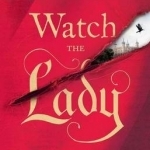
Watch the Lady
Book
The Queen's God Daughter. Her Most Trusted Maid. Adultress. Enemy Of The State. Who is The Real...
Ross (3284 KP) rated The Court of Broken Knives in Books
Aug 7, 2018
Finally, well executed, gritty literary fantasy
I had skimmed some reviews of this book after seeing glowing recommendations of it in different facebook groups. I was warned the tone of the narrative was off-putting and very different to the genre. I have read a few authors who try and put a more literary, almost poetic slant on the narrative in fantasy books and I always found it a bit flowery and took me out of the story.
Not so here. I'll admit the tone took me a couple of chapters to get to grips with, but I am so glad I stuck with it. The lyrical poetry contained within the narrative is so good that it adds to the story being told, it puts some emotion into the storytelling, something that is so sorely lacking from many books in third-person narrative.
Descriptions of people, places, feelings, events take on a whole new level of tangibility so rarely felt in fantasy fiction (without going down the Stephen King route of describing everything, and avoiding the Robert Jordan horse/riding dress description pratfalls).
The only place this becomes an issue is at times in the action scenes. On occasion I had to re-read a passage to work out what had actually happened - while I enjoyed the words I had struggled to pick up on what had occurred.
The story itself is not overly elaborate and unfolds before you with little warning. It felt like a natural, flowing journey than a series of events loosely tied together. We have the gritty mercenary company en route to unleash hell on the Empire, the great priestess of the God of living and dying (who has to sacrifice someone every few days to ensure life and death continue to operate properly) and we have the political manoeuvrings of the high lords within the Empirical council. This is all weaved together in the first third of the book to an excellent, surprising conclusion (in what many authors would have filled a whole book with ad nauseum), with the remainder of the book being a journey through wild country while everyone double-crosses everyone else.
This is of the grim-dark sub-genre, which basically means everyone is a bit of a shit, and bad things happen to nice people. There are no heroes here. There are characters you come to rout for (or despise) but you know it is wrong to do so as they are all so nasty and flawed in so many ways, like humanity itself.
Don't be expecting a happy ending!
Not so here. I'll admit the tone took me a couple of chapters to get to grips with, but I am so glad I stuck with it. The lyrical poetry contained within the narrative is so good that it adds to the story being told, it puts some emotion into the storytelling, something that is so sorely lacking from many books in third-person narrative.
Descriptions of people, places, feelings, events take on a whole new level of tangibility so rarely felt in fantasy fiction (without going down the Stephen King route of describing everything, and avoiding the Robert Jordan horse/riding dress description pratfalls).
The only place this becomes an issue is at times in the action scenes. On occasion I had to re-read a passage to work out what had actually happened - while I enjoyed the words I had struggled to pick up on what had occurred.
The story itself is not overly elaborate and unfolds before you with little warning. It felt like a natural, flowing journey than a series of events loosely tied together. We have the gritty mercenary company en route to unleash hell on the Empire, the great priestess of the God of living and dying (who has to sacrifice someone every few days to ensure life and death continue to operate properly) and we have the political manoeuvrings of the high lords within the Empirical council. This is all weaved together in the first third of the book to an excellent, surprising conclusion (in what many authors would have filled a whole book with ad nauseum), with the remainder of the book being a journey through wild country while everyone double-crosses everyone else.
This is of the grim-dark sub-genre, which basically means everyone is a bit of a shit, and bad things happen to nice people. There are no heroes here. There are characters you come to rout for (or despise) but you know it is wrong to do so as they are all so nasty and flawed in so many ways, like humanity itself.
Don't be expecting a happy ending!
Phil Leader (619 KP) rated Genesis: Vision of the New World (Terra Nova #2) in Books
Nov 13, 2019
Following on from the events in Universe: Awakening, the first book in the series (which you need to read before this one), this picks up events on Arkos after some time has passed. Minister Odessa is still concerned about the findings of the DEUS probes, and when there is an astronomical anomaly and a disaster on the planet itself she realises that she needs her most trusted allies to determine the threat that is posed. Meanwhile there is a change at the head of the lower-status Gendu, both in terms of politics and religion, which aren't universally popular. Society may be under threat from within and without.
This is a long book, but like the first one it covers a lot of ground. There is a far more investigation of the Gendu, their politics and their religion. The succession of Darius as head of the Gendu, and the rise of a greedy and flawed priest in the religious sect provide the backbone of the story. The Celesti are frustrated by only being allowed to observe and not interfere, but are focused on exploring the anomaly. Odessa also starts a related project to enhance some of the indigenous apes.
This is not a book that can be read in isolation. As the middle of a trilogy it answers few questions from the first book and raises many that are due to be resolved in the final installment. It is clear that everything is converging, momentum carrying people and events along as much they are exerting their own control. The author has constructed a world where the plot is driven from a number of different directions and this ensures that each chapter has something to add.
The writing is very confident. Overttun has really found his voice as an author and uses it to show the reader all of his creation. From the clinical efficiency of Odessa's experiments to the dirt and grime of the seedier areas of Gendu society, the narrative weaves its way inexorably onwards. The prose is lean and efficient, lending impetus to the story. The exploits of the already known characters will entertain as they are old friends, the new characters are all interesting and nuanced.
This is building to be a fabulous epic trilogy, epic in depth, breadth and scale. It isn't science fiction, it isn't a political thriller, it isn't a philosophical treatise. It is all these and more. I really cannot wait to see what happens next. Stunning.
This is a long book, but like the first one it covers a lot of ground. There is a far more investigation of the Gendu, their politics and their religion. The succession of Darius as head of the Gendu, and the rise of a greedy and flawed priest in the religious sect provide the backbone of the story. The Celesti are frustrated by only being allowed to observe and not interfere, but are focused on exploring the anomaly. Odessa also starts a related project to enhance some of the indigenous apes.
This is not a book that can be read in isolation. As the middle of a trilogy it answers few questions from the first book and raises many that are due to be resolved in the final installment. It is clear that everything is converging, momentum carrying people and events along as much they are exerting their own control. The author has constructed a world where the plot is driven from a number of different directions and this ensures that each chapter has something to add.
The writing is very confident. Overttun has really found his voice as an author and uses it to show the reader all of his creation. From the clinical efficiency of Odessa's experiments to the dirt and grime of the seedier areas of Gendu society, the narrative weaves its way inexorably onwards. The prose is lean and efficient, lending impetus to the story. The exploits of the already known characters will entertain as they are old friends, the new characters are all interesting and nuanced.
This is building to be a fabulous epic trilogy, epic in depth, breadth and scale. It isn't science fiction, it isn't a political thriller, it isn't a philosophical treatise. It is all these and more. I really cannot wait to see what happens next. Stunning.
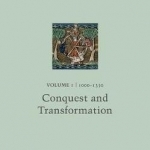
The Oxford English Literary History: Volume 1: 1000-1350: Conquest and Transformation
Book
The Oxford English Literary History is the new century's definitive account of a rich and diverse...
Writing (3 more)
Characters
Inconsistencies
Not a horror book, as marketed
What if a powerful virus was released in the air? What if you had to be tested for it every time you tried to walk into a building? Does this sound a little familiar? What if I told you this scenario was written about back in 2010?
In her novel Feed, writer Mira Grant gives readers this very scenario of an airborne, blood transferred virus; something that seems very familiar in today's environment and day-to-day living- - - just minus the zombies.
Grant started out as an urban fantasy writer known as Seanan McGuire, with her first full-length novel being Rosemary and Rue. She received the 2010 John W. Campbell Award for Best New Writer, as well as many other awards for her work in fiction. There are four books in the Newsflash series (Feed being the first of these).
We meet our main characters, Georgia and Shaun, while they're out in the 'field' filming some zombies for their blog. Shaun is the more careless one, as we witness him poking at zombies with his hockey stick. The two suddenly have to leave when the zombies become a pack. This is where it gets a little strange- - -Georgia explains to the readers that when zombies are in a pack, they become stronger and somehow smarter, but throughout the rest of the book, it's never really explained how this happens.
In this world, blogging and your view count determines your quality of life. Georgia and Shaun have spent years making their blog- - - After the End Times- - - into a popular blog. Every blogger's dream is to be picked to follow the campaign trail of any upcoming politician, and that is exactly what happens to our main characters. Unfortunately, this is when the book turns into a political thriller- - - this happens within the first fifty pages. Zombies end up taking a backseat from here-on-out.
We still get to learn about the virus (Kellis-Amberlee) throughout the book. We're told that any animal that weighs more than 40 pounds is capable of having the virus, and that some people are even born with a dormant-type of the virus inside of them, but this is also never explained in the entire story, at least in book one. Georgia makes it quite clear throughout the novel that she is completely against anyone owning pets that weigh over 40 pounds, but this is due-to her family having lost their younger son to a pet that went viral. This becomes extremely repetitive. Every time that an animal is brought up or seen, Georgia has to retell her stance on owning pets, when once or twice was enough to let the readers know where she stands on the subject.
There are moments of zombie attacks- - - such as after a political rally in a small town where Georgia and her crew are following Senator Ryman on his race to become President, when bodyguards are attacked by a small group of the undead, and Georgia and Shaun become cornered by a few of them- - - these scenes read as if to just keep the zombie trope going, not to actually make the story better. Grant continually repeats herself throughout the book, and because of this, the story didn't have to be as long as it is. Such as with these few zombie attacks, the reader never feels much danger for the characters. And I found that the characters turn out to just not be that likable.
One such character that had potential is Buffy; the backbone of the After the End Times blog. Scenes that were meant to make the reader care for her fell short. Unlike scenes with Georgia and Shaun, including the bond between them, is not felt with Buffy's scenes; she merely seems like a filler character to make certain parts of the story make sense by constantly disappearing and reappearing wherever need be.
Georgia does have an interesting quirk in the book. She harbors the dormant Kellis-Amberlee virus, which has effected her eyes. She can't be in bright lights because they give her blinding headaches, so she wears sunglasses nearly everywhere: " I collapsed onto our bed at the local four-star hotel a little after dawn, my aching eyes already squeezed shut. Shaun was a bit steadier on his feet and he stayed upright long enough to make sure the room's blackout curtains were drawn. "
The technical side of the story - - - the computer world and the electronic usage- - - in Feed is done pretty well. It's like the movie Nightcrawler meets 28 Days Later, but with a lot less zombies. We get to see the seedy underbelly of journalism- - - where bloggers are willing to do anything to get their view count high. Readers also get to witness how life is like living in a world held hostage by a virus - - -something that is very relatable today.
Georgia constantly reminds readers that she doesn't care about other people, and that Shaun is the only person she cares for- - - and, of course, the view count. She continually blames her lack of empathy on their adoptive parents, stating that they only took them in for the their own blog view counts. Oddly after such information, Shaun doesn't seem to be the immature one in the duo.
I haven't read the other three books, one which is a republishing of Feed, but from a different point-of-view. This story was disguised as a horror novel, but just ended up being a political thriller with some zombies thrown in for a much wider reading audience. The book skims over what life would be like after a devastating virus takes over, but focuses on what politics would be like. I can't recommend Feed as a horror novel; the tagline is also misleading: " 'The good news: we survived. The bad news: so did they. " Unless Grant was talking about politicians....
I didn't give the story a low rating because it wasn't exactly a horror book, but instead for these reasons: throughout the story, Grant repeats a lot of information that was explained earlier in the book (and only needed to be explained once); she also had inconsistencies throughout, sometimes even in the very next sentence. Adding things that needed to be explained which weren't, and the afterthoughts that broke up the flow of the story, I just couldn't enjoy it. But, if you like political thrillers, then you might like this one. I won't be continuing this series.
In her novel Feed, writer Mira Grant gives readers this very scenario of an airborne, blood transferred virus; something that seems very familiar in today's environment and day-to-day living- - - just minus the zombies.
Grant started out as an urban fantasy writer known as Seanan McGuire, with her first full-length novel being Rosemary and Rue. She received the 2010 John W. Campbell Award for Best New Writer, as well as many other awards for her work in fiction. There are four books in the Newsflash series (Feed being the first of these).
We meet our main characters, Georgia and Shaun, while they're out in the 'field' filming some zombies for their blog. Shaun is the more careless one, as we witness him poking at zombies with his hockey stick. The two suddenly have to leave when the zombies become a pack. This is where it gets a little strange- - -Georgia explains to the readers that when zombies are in a pack, they become stronger and somehow smarter, but throughout the rest of the book, it's never really explained how this happens.
In this world, blogging and your view count determines your quality of life. Georgia and Shaun have spent years making their blog- - - After the End Times- - - into a popular blog. Every blogger's dream is to be picked to follow the campaign trail of any upcoming politician, and that is exactly what happens to our main characters. Unfortunately, this is when the book turns into a political thriller- - - this happens within the first fifty pages. Zombies end up taking a backseat from here-on-out.
We still get to learn about the virus (Kellis-Amberlee) throughout the book. We're told that any animal that weighs more than 40 pounds is capable of having the virus, and that some people are even born with a dormant-type of the virus inside of them, but this is also never explained in the entire story, at least in book one. Georgia makes it quite clear throughout the novel that she is completely against anyone owning pets that weigh over 40 pounds, but this is due-to her family having lost their younger son to a pet that went viral. This becomes extremely repetitive. Every time that an animal is brought up or seen, Georgia has to retell her stance on owning pets, when once or twice was enough to let the readers know where she stands on the subject.
There are moments of zombie attacks- - - such as after a political rally in a small town where Georgia and her crew are following Senator Ryman on his race to become President, when bodyguards are attacked by a small group of the undead, and Georgia and Shaun become cornered by a few of them- - - these scenes read as if to just keep the zombie trope going, not to actually make the story better. Grant continually repeats herself throughout the book, and because of this, the story didn't have to be as long as it is. Such as with these few zombie attacks, the reader never feels much danger for the characters. And I found that the characters turn out to just not be that likable.
One such character that had potential is Buffy; the backbone of the After the End Times blog. Scenes that were meant to make the reader care for her fell short. Unlike scenes with Georgia and Shaun, including the bond between them, is not felt with Buffy's scenes; she merely seems like a filler character to make certain parts of the story make sense by constantly disappearing and reappearing wherever need be.
Georgia does have an interesting quirk in the book. She harbors the dormant Kellis-Amberlee virus, which has effected her eyes. She can't be in bright lights because they give her blinding headaches, so she wears sunglasses nearly everywhere: " I collapsed onto our bed at the local four-star hotel a little after dawn, my aching eyes already squeezed shut. Shaun was a bit steadier on his feet and he stayed upright long enough to make sure the room's blackout curtains were drawn. "
The technical side of the story - - - the computer world and the electronic usage- - - in Feed is done pretty well. It's like the movie Nightcrawler meets 28 Days Later, but with a lot less zombies. We get to see the seedy underbelly of journalism- - - where bloggers are willing to do anything to get their view count high. Readers also get to witness how life is like living in a world held hostage by a virus - - -something that is very relatable today.
Georgia constantly reminds readers that she doesn't care about other people, and that Shaun is the only person she cares for- - - and, of course, the view count. She continually blames her lack of empathy on their adoptive parents, stating that they only took them in for the their own blog view counts. Oddly after such information, Shaun doesn't seem to be the immature one in the duo.
I haven't read the other three books, one which is a republishing of Feed, but from a different point-of-view. This story was disguised as a horror novel, but just ended up being a political thriller with some zombies thrown in for a much wider reading audience. The book skims over what life would be like after a devastating virus takes over, but focuses on what politics would be like. I can't recommend Feed as a horror novel; the tagline is also misleading: " 'The good news: we survived. The bad news: so did they. " Unless Grant was talking about politicians....
I didn't give the story a low rating because it wasn't exactly a horror book, but instead for these reasons: throughout the story, Grant repeats a lot of information that was explained earlier in the book (and only needed to be explained once); she also had inconsistencies throughout, sometimes even in the very next sentence. Adding things that needed to be explained which weren't, and the afterthoughts that broke up the flow of the story, I just couldn't enjoy it. But, if you like political thrillers, then you might like this one. I won't be continuing this series.
Chris Hooker (419 KP) rated No Way Home (A Science Fiction Anthology) in Books
Jan 12, 2018
I received [No Way Home] from author [Harry Manners] in exchange for a honest review. This collection of short stories with the theme of being stranded, in one way or another, was a thought provoking read.
[To Sing of Chaos and Eternal Night] by [Lucas Bale] took me a few days to get past the beginning. The concept of a soldier who has lost all being and is just thought sent to robotic bodies and told to fight the enemy was interesting. As I stated, unfortunately, it was a slow start but the ending was worth the read.
[XE, or People Are Strange] by [S. Elliot Brandis]gave a new meaning to getting away from it all. The main character, Bradley, volunteers to be put in a shuttle to find a new habitable plant. His mission is one way and he is to send a signal back to Earth if it is a safe place. Apparently, though, he is not the first, or only, person on the new planet. I really liked the twist in this story.
[Grist] by [J.S. Collyer] is a futuristic view where one entity has taken control and all others are forced to work for them, often underground. Wyatt was not born into this so he remembers fresh air and sun. He wants to escape and be free again. Just daring to think this way can be deadly and he must know who to trust. The question this story had me asking was what is life worth?
[Merely A Madness] by [S.W. Fairbrother] was one I was really excited to see in this collection because I had read [The Secret Dead] and loved it. [Merely A Madness] did not disappoint in anyway. Earth has become a hostile place but most people have escaped off planet. Hannah loves old earth and Mullen sets up a holiday because he aims to please. This would be like current day people going to a wild west ranch, real but not too real. Things go horribly wrong and Mullen must make a hard choice. This story was one of my favorites by far.
[Revolver] by [Michael Patrick Hicks] was the most overtly political and also one of the most enjoyable. The concept of reality TV and politics preying on the unfortunates is so scary because it is not far from our current reality. I really loved the statement made in this one.
[The Happy Place] by [Harry Manners] was a story of a dream gone horribly wrong. Michael has always dreamed of going to the stars and with his wife this dream becomes a reality as he is chosen to colonize Mars. Years later he realizes his dream may be a nightmare as he begins to lose everything he loves. The only thing that keeps him going is 'the Happy Place', a virtual reality of his memories from Earth, but keeping this secret from those he loves may cost him even more. This is the third work I have read from [Harry Manners] and I love how he handles loneliness and making hard decisions. His characters are always deeper than they first appear.
[Renata] by [Nadine Matheson] is a futuristic spy story wrapped in a mob hit with political intrigue. Yes, I enjoyed this one as well. Kaoru is an assassin who gets his assignments from his brother. His latest target is in the past. This is the assignment that may just kill him.
[Cold Witness] by [A.S. Sinclair] was a mental thriller. John Marshall is sent to check out an abandoned military complex that he is told little about. When he arrives there he hears rumors of strange things involving the final project at the base. Upon arrival he begins hallucinating and his memories begin to meld with others. The question of what is reality is constant throughout.
All the stories were well written and enjoyable. I also liked how each author wrote an "Afterword" that explained a little of how they came up with the concept they did. I recommend this to any fan of futuristic and science fiction.
[To Sing of Chaos and Eternal Night] by [Lucas Bale] took me a few days to get past the beginning. The concept of a soldier who has lost all being and is just thought sent to robotic bodies and told to fight the enemy was interesting. As I stated, unfortunately, it was a slow start but the ending was worth the read.
[XE, or People Are Strange] by [S. Elliot Brandis]gave a new meaning to getting away from it all. The main character, Bradley, volunteers to be put in a shuttle to find a new habitable plant. His mission is one way and he is to send a signal back to Earth if it is a safe place. Apparently, though, he is not the first, or only, person on the new planet. I really liked the twist in this story.
[Grist] by [J.S. Collyer] is a futuristic view where one entity has taken control and all others are forced to work for them, often underground. Wyatt was not born into this so he remembers fresh air and sun. He wants to escape and be free again. Just daring to think this way can be deadly and he must know who to trust. The question this story had me asking was what is life worth?
[Merely A Madness] by [S.W. Fairbrother] was one I was really excited to see in this collection because I had read [The Secret Dead] and loved it. [Merely A Madness] did not disappoint in anyway. Earth has become a hostile place but most people have escaped off planet. Hannah loves old earth and Mullen sets up a holiday because he aims to please. This would be like current day people going to a wild west ranch, real but not too real. Things go horribly wrong and Mullen must make a hard choice. This story was one of my favorites by far.
[Revolver] by [Michael Patrick Hicks] was the most overtly political and also one of the most enjoyable. The concept of reality TV and politics preying on the unfortunates is so scary because it is not far from our current reality. I really loved the statement made in this one.
[The Happy Place] by [Harry Manners] was a story of a dream gone horribly wrong. Michael has always dreamed of going to the stars and with his wife this dream becomes a reality as he is chosen to colonize Mars. Years later he realizes his dream may be a nightmare as he begins to lose everything he loves. The only thing that keeps him going is 'the Happy Place', a virtual reality of his memories from Earth, but keeping this secret from those he loves may cost him even more. This is the third work I have read from [Harry Manners] and I love how he handles loneliness and making hard decisions. His characters are always deeper than they first appear.
[Renata] by [Nadine Matheson] is a futuristic spy story wrapped in a mob hit with political intrigue. Yes, I enjoyed this one as well. Kaoru is an assassin who gets his assignments from his brother. His latest target is in the past. This is the assignment that may just kill him.
[Cold Witness] by [A.S. Sinclair] was a mental thriller. John Marshall is sent to check out an abandoned military complex that he is told little about. When he arrives there he hears rumors of strange things involving the final project at the base. Upon arrival he begins hallucinating and his memories begin to meld with others. The question of what is reality is constant throughout.
All the stories were well written and enjoyable. I also liked how each author wrote an "Afterword" that explained a little of how they came up with the concept they did. I recommend this to any fan of futuristic and science fiction.
BookblogbyCari (345 KP) rated The Dark Net in Books
Jan 26, 2019
Eye-opening!
For those who don’t know, the dark net is hidden seedier internet just below the regular surface internet. In this work of non-fiction, Bartlett explores the dark net’s various elusive and somewhat criminal goings-on; often going out of his way in the name of research.
The book kicks off with a dramatic introduction, talking about the Assassination Market. The assassination market is basically an online list of names and dates. Participants bet on what date an individual on the list will die. If a bet is correctly “guessed”, the winner walks away with all the winnings. Unfortunately, this was the shortest chapter and had the least amount of research made evident.
The drama continues in the following chapter which is about trolling, however this chapter read like a history book, and didn’t live up to the precedent set in the introduction. Shortly afterward though, Bartlett goes on to talk about one-man political parties, who set up several accounts on several sites to get their propaganda trending.
Later on Bartlett journeys into the strange real world community of Calafou. Here he meets cypherpunks and explains the crypto-currency Bitcoin to the reader. This unfortunately was another rather drab chapter.
The shortest chapter following the introduction was entitled “Three clicks”, which was named so when the author tried to find out how long it would take him to find child porn using free software known as “The Onion Router” and the “Hidden Wiki”. (Of course the author reported it to the police.)
There’s also a chapter on pro-anorexia and pro-self-harm sites.
And when I said the author often went out of his way in the name of research, I wasn’t kidding! The author went on the online “Silk Road” to purchase a very small amount of marijuana! And later still Bartlett is in the actual bedroom of a webcam star as she performs a rude show with 3 other women!
Reading a book on the dark net is the closest I’m ever going to get to actually using the dark net, so I wanted a lot from this book. I learned that the dark net would be pretty easy to navigate if I really wanted to use it. That said there was nothing in the book that would entice me to do anything that might involve covering my tracks.
So although there were a couple of chapters that were unnecessarily long, the other chapters definitely made up for it! Aside from the lack of detail on the Assassination Market, the remainder of the book appears well researched, with a lot of face to face and online meetings between the author and the people in the know.
The book kicks off with a dramatic introduction, talking about the Assassination Market. The assassination market is basically an online list of names and dates. Participants bet on what date an individual on the list will die. If a bet is correctly “guessed”, the winner walks away with all the winnings. Unfortunately, this was the shortest chapter and had the least amount of research made evident.
The drama continues in the following chapter which is about trolling, however this chapter read like a history book, and didn’t live up to the precedent set in the introduction. Shortly afterward though, Bartlett goes on to talk about one-man political parties, who set up several accounts on several sites to get their propaganda trending.
Later on Bartlett journeys into the strange real world community of Calafou. Here he meets cypherpunks and explains the crypto-currency Bitcoin to the reader. This unfortunately was another rather drab chapter.
The shortest chapter following the introduction was entitled “Three clicks”, which was named so when the author tried to find out how long it would take him to find child porn using free software known as “The Onion Router” and the “Hidden Wiki”. (Of course the author reported it to the police.)
There’s also a chapter on pro-anorexia and pro-self-harm sites.
And when I said the author often went out of his way in the name of research, I wasn’t kidding! The author went on the online “Silk Road” to purchase a very small amount of marijuana! And later still Bartlett is in the actual bedroom of a webcam star as she performs a rude show with 3 other women!
Reading a book on the dark net is the closest I’m ever going to get to actually using the dark net, so I wanted a lot from this book. I learned that the dark net would be pretty easy to navigate if I really wanted to use it. That said there was nothing in the book that would entice me to do anything that might involve covering my tracks.
So although there were a couple of chapters that were unnecessarily long, the other chapters definitely made up for it! Aside from the lack of detail on the Assassination Market, the remainder of the book appears well researched, with a lot of face to face and online meetings between the author and the people in the know.

